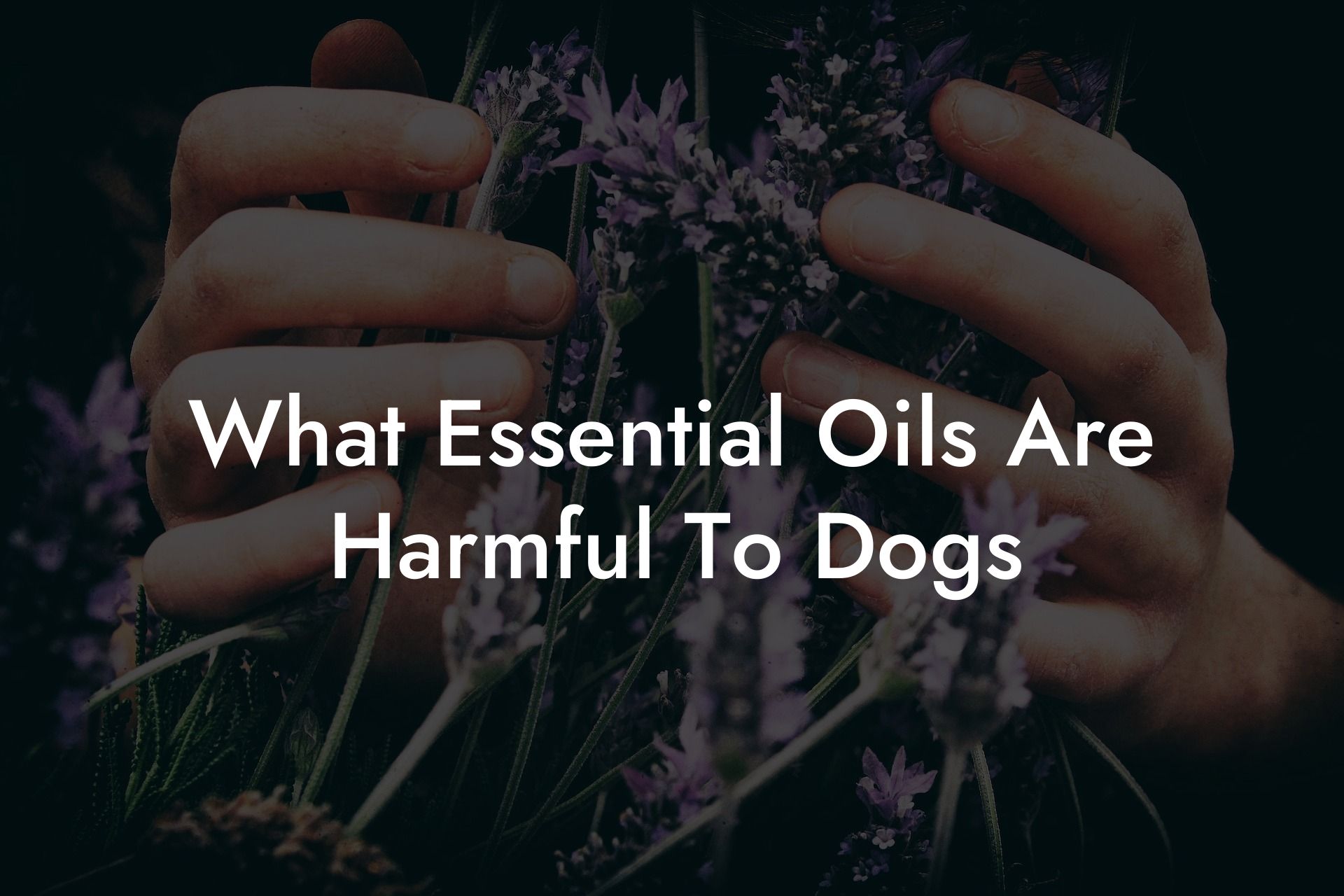As essential oil enthusiasts, we often turn to these potent plant extracts to enhance our daily lives. But, those delightful fragrant concoctions that enhance our wellbeing can also pose a risk to our beloved pets. If you’re using essential oils in your daily routine and have a dog at home, it’s essential to understand which oils can be harmful and even toxic for them.
Table of Contents
Why Certain Essential Oils are Dangerous for Dogs
Dogs have a much more sensitive sense of smell compared to humans, which makes them more vulnerable to the effects of potent essential oils. Their skin is also more permeable, making topical application riskier. Certain compounds, such as phenols and terpenes found in some essential oils, can cause adverse reactions in dogs, leading to symptoms like vomiting, diarrhea, tremors, and even seizures.
Essential Oils to Avoid Around Dogs
To keep your furry friends safe, be aware of these particular essential oils that could pose a threat to their well-being:
- Clove – Contains phenols that can cause skin irritation and poisoning in dogs.
- Tea Tree – High in terpenes, it can cause tremors, vomiting, and ataxia if ingested or absorbed through the skin.
- Peppermint – The high menthol content can cause skin irritation and gastrointestinal upset.
- Wintergreen – Contains methyl salicylate that can lead to toxicity if ingested.
- Eucalyptus – Can cause vomiting, diarrhea, and drooling if ingested in large amounts.
- Thyme – Contains thymol which can cause skin irritation and possible liver damage if ingested by dogs.
- Oregano – Contains carvacrol and thymol that can irritate the mucous membrane and cause liver damage.
- Cinnamon – Can cause an allergic reaction in dogs, leading to diarrhea and vomiting.
- Anise – Potential to cause vomiting and hypersalivation.
- Jasmine – May cause dermatitis if applied directly to a dog’s skin.
Safe Alternatives: Dog-Friendly Essential Oils
While it’s necessary to avoid using the aforementioned oils, remember that not all essential oils are harmful to dogs. Some safer options include:
- Chamomile
- Lavender
- Ginger
- Frankincense
- Cardamom
How to Use Essential Oils Safely Around Dogs
To ensure a safe environment for your pets while enjoying the benefits of essential oils, follow these guidelines:
- Consult with a veterinarian before using any essential oils, especially if your dog has any existing health conditions.
- Use high-quality, therapeutic grade essential oils from a trusted source.
- Avoid applying essential oils directly to your dog’s skin.
- Use a diffuser in a well-ventilated room and allow your dog access to other areas.
- Store essential oils out of your dog’s reach, and never leave bottles open.
- Observe your pet for any unusual behavior or symptoms after using essential oils. If any adverse reactions occur, immediately discontinue use and consult your veterinarian.
What Essential Oils Are Harmful To Dogs Example:
Imagine you are using a peppermint essential oil in a diffuser to help keep you focused during work hours. Unbeknownst to you, your dog is in the same room and starts exhibiting symptoms like vomiting and diarrhea. Upon researching the potential causes, you discover that peppermint oil is harmful to dogs.
To prevent this scenario from happening, you can replace the peppermint oil with a dog-friendly option like lavender, which is calming for both you and your pet. Additionally, following the safety guidelines above can ensure a healthier environment for you and your four-legged friend.
Now that you’re aware of the potential dangers some essential oils can pose to dogs, it’s essential to take steps to create a pet-safe environment. Share this article with fellow dog owners while you explore other guides on Oshu Oils. Remember, our range of artisan, essential earth oils is carefully crafted to bring balance and harmony to your life while keeping your pet’s safety front and center. Consult a veterinarian or aromacologist with any concerns before using essential oils in your home.





















